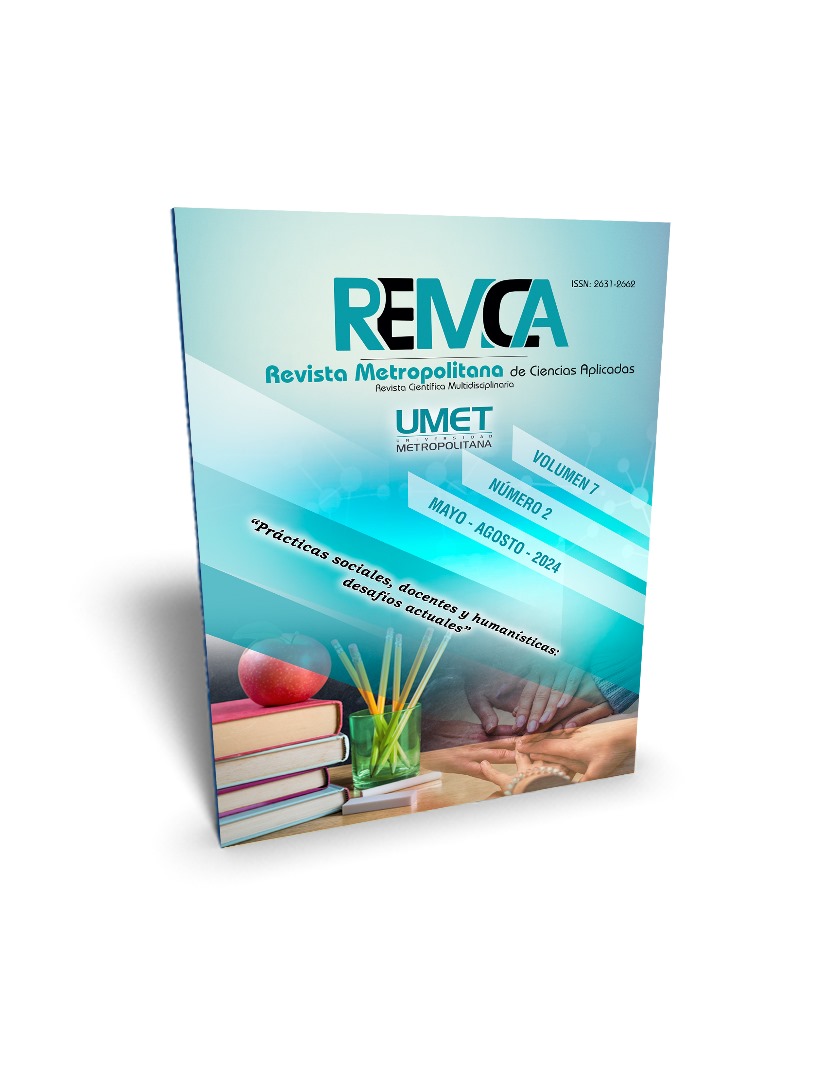Uso del Desing Thinking como herramienta para la mejora de la sostenibilidad en emprendimientos turísticos
DOI:
https://doi.org/10.62452/w2c0n996Keywords:
Design thinking, entrepreneurship, sustainable tourism, good environmental practices, trainingAbstract
The objective of this work was to base the use of the design thinking methodology as a tool to improve the sustainability of tourism ventures in Ecuador, based on the consequences caused by the pandemic in this sector so hit during the years of 2019 to 2021. For this, information is collected from four tourist enterprises located in the parish of Mindo in Quito, in which the resulting prototype of the methodology will be tested. This is chosen firstly because it is a complex problem and secondly because it is focused on people, in this particular case, on tourism entrepreneurs, empathizing with their needs and problems, as well as analyzing the changing environment, challenges and offering innovative solutions. Among the main results obtained in the research, the opinion of the tourism entrepreneurs interviewed about the importance of training as one of the factors to guarantee the success of their businesses and their sustainability stands out, which allowed the design of a prototype of a course of good environmental practices, which includes general bases on the environment, waste management and basic actions to minimize the environmental impact of these undertakings.
Downloads
References
Ecuador. Ministerio de Turismo. (2020). Informe de rendición de cuentas 2019. https://www.turismo.gob.ec/wp-content/uploads/2020/02/Informe-de-Rendici%C3%B3n-de-cuentas-2019-vf9.pdf
Ecuador. Ministerio de Turismo. (2021). Informe de rendición de cuentas 2020. https://www.turismo.gob.ec/wp-content/uploads/2021/05/Informe-de-Rendicio%CC%81n-de-Cuentas-2020.pdf
Ecuador. Ministerio de Turismo. (2022). Rendición de cuentas 2021. https://www.turismo.gob.ec/wp-content/uploads/2022/03/Informe-Rendicio%CC%81n-de-Cuentas-2021-Textual.pdf
García, J. (2011). El proceso de capacitación, sus etapas e implementación para mejorar el desempeño del recurso humano en las organizaciones. Edumet. https://www.eumed.net/ce/2011b/jmgl.pdf
Lalangui, J., Espinoza-Carrión, C., & Pérez-Espinoza, M. (2017). Turismo sostenible, un aporte a la responsabilidad social empresarial: Sus inicios, características y desarrollo. Universidad y Sociedad, 9 (1), 148-153. https://rus.ucf.edu.cu/index.php/rus/article/view/498
Lasio, V., Amaya, A., Zambrano, J., & Ordeñana, X. (2020). Global Entrepreneurship Monitor Ecuador. BABSON.
Mendes, F.C., & Detmering, P.H. (2018). Turismo sustentável na comunidade chã de Jardim em Areia/Pb”, Applied Tourism, 3(1), 72-92.
Organización Mundial del Turismo. (1995). Carta del turismo sostenible. OMT. https://www.entornoturistico.com/wp-content/uploads/2017/11/Carta-del-Turismo-Sostenible-Lanzarote-Espan%CC%83a-1995.pdf
Organización Mundial del Turismo. (2013). Turismo y patrimonio cultural inmaterial. https://www.e-unwto.org/doi/book/10.18111/9789284415397
Reinoso, R. (2017). Arqueología del Ecuador. https://es.slideshare.net/JaisjechuAndrade/arqueologia-del-ecuador-i
Toselli, C., Takáts, A., & Traverso, L. (2020). Análisis de la sostenibilidad en emprendimientos turísticos ubicados en áreas rurales y naturales. Estudios de caso en la provincia de Entre Ríos, Argentina. Cuadernos de Turismo, 45, 461–489. https://doi.org/10.6018/turismo.426211
Ulloa, P. (2020). Aprende. Emprendimiento Ecuador. https://emprendimiento.ec/emprende/aprende/?msclkid=b65e9489d07f11ec9faa685c31457c10
Downloads
Published
Issue
Section
License
Copyright (c) 2024 Andrea Charpentier-Alcívar, Dimas Néstor Hernández-Gutiérrez, Luz María Contreras-Velázquez, Jonathan Proaño-Varela (Autor/a)

This work is licensed under a Creative Commons Attribution-NonCommercial-ShareAlike 4.0 International License.
Authors who publish in Revista Metropolitana de Ciencias Aplicadas (REMCA), agree to the following terms:
1. Copyright
Authors retain unrestricted copyright to their work. Authors grant the journal the right of first publication. To this end, they assign the journal non-exclusive exploitation rights (reproduction, distribution, public communication, and transformation). Authors may enter into additional agreements for the non-exclusive distribution of the version of the work published in the journal, provided that acknowledgment of its initial publication in this journal is given.
© The authors.
2. License
The articles are published in the journal under the Creative Commons Attribution-NonCommercial-ShareAlike 4.0 International License (CC BY-NC-SA 4.0). The terms can be found at: https://creativecommons.org/licenses/by-nc-sa/4.0/deed.en
This license allows:
- Sharing: Copying and redistributing the material in any medium or format.
- Adapting: Remixing, transforming, and building upon the material.
Under the following terms:
- Attribution: You must give appropriate credit, provide a link to the license, and indicate if any changes were made. You may do this in any reasonable manner, but not in any way that suggests the licensor endorses or sponsors your use.
- NonCommercial: You may not use the material for commercial purposes.
- ShareAlike: If you remix, transform, or build upon the material, you must distribute your creation under the same license as the original work.
There are no additional restrictions. You may not apply legal terms or technological measures that legally restrict others from doing anything the license permits.




